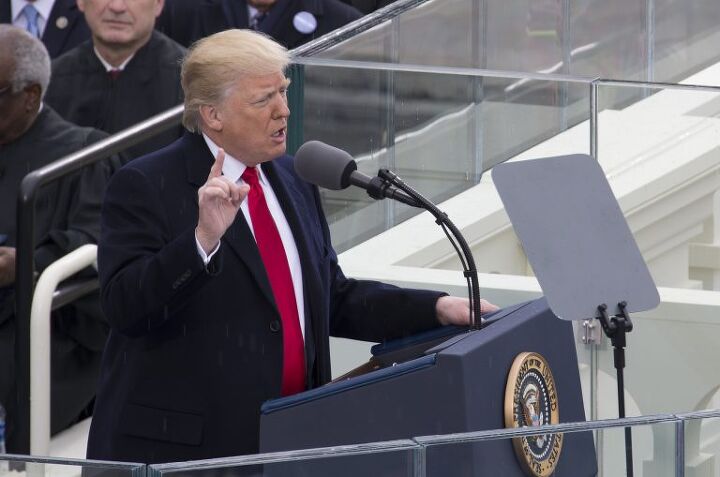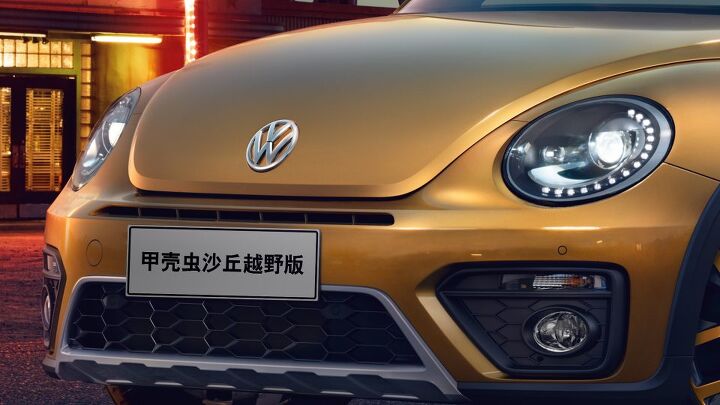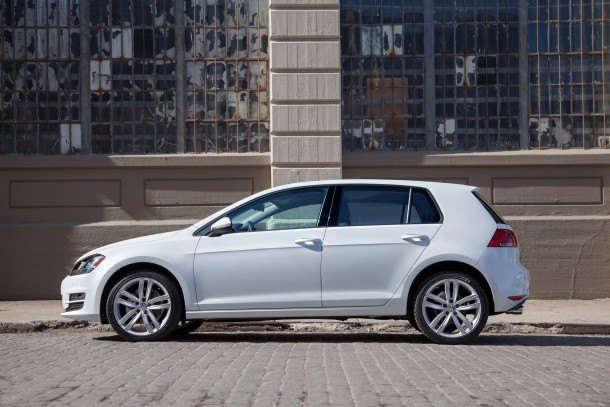#AngelaMerkel
Keeping Tabs: Germany Promises One Million EV Charge Points by 2030
German Chancellor Angela Merkel announced Sunday that her country will soon have one million charging stations ready for electric cars. Her words came ahead of numerous meetings with German automotive manufacturers on how best to spur EV adoption in Europe.
Pivoting to zero-emission vehicles has many worried about job losses. The United Auto Workers issued a nearly 40-page report on the implications of electric vehicles and how to address them during its negotiations with General Motors — after the automaker said the battery plant it was eyeballing in Ohio would require hourly employees to take pay cuts. The Center for Automotive Research has also indicated that EVs simply don’t take as many man hours to manufacture. It’s even mentioned in the Trump administration’s fuel economy rollback proposal — an effort bent on furnishing cheap automobiles and American jobs.
Germany is worried too, with groups echoing similar employment concerns. To mitigate those fears, while encouraging electrification and maintaining jobs, the nation wants to take its 20,000 charging stations to 1 million.
Trade War Watch: Trump Rejects Auto Tariff Deal With Europe
Earlier this year, President Donald Trump took a renewed interest in European tariffs after deciding he didn’t like what he saw. He argued it was time for the United States to consider a fresh tax on vehicles manufactured in the European Union to level the playing field. “If the EU wants to further increase their already massive tariffs and barriers on U.S. companies doing business there, we will simply apply a tax on their cars which freely pour into the U.S.,” he wrote in March.
A few months later, America floated the ridiculous-sounding proposal of abolishing all automotive tariffs between the U.S. and EU. Surprisingly, Europe was highly receptive. German Chancellor Angela Merkel even directly addressed the issue by saying she would support lowering EU tariffs on U.S. car imports. The European Union now seems willing to pursue a zero-tariff solution on automobiles.
However, Trump has since changed his tune. The new rhetoric coming from the White House is that the deal, which was originally pitched by the U.S., is no longer good enough.
Trade War Watch: Germany and China Now Best Friends
China and Germany signed a collection of commercial accords valued at $23.5 billion this week. Meanwhile, the nations’ leaders publicly affirmed their commitment to a multilateral global trade order, while the United States adopts a more protectionist policy.
“We both want to sustain the system of World Trade Organization rules,” German Chancellor Angela Merkel said during a press conference. Chinese Premier Li Keqiang, also present, agreed and stated protectionism must be prevented for the good of the global economy.
Chinese President Xi Jinping has already pleaded for governments to maintain an open trading policy. “We reject selfish, shortsighted, closed, narrow policies, [we] uphold World Trade Organisation rules, support a multi-lateral trade system, and building an open world economy,” Xi said in an incredibly hypocritical speech from last month.
U.S. Gives German Auto Industry Zero-tariff Proposal, Merkel Receptive
The fresh threat of new automotive and parts tariffs from the United States has everyone up in arms. We recently published an exhaustive list of comments manufacturers and local governments made to the U.S. Commerce Department. They, along with suppliers, universally despise the idea and are doing everything in their power to convince the Trump administration to reconsider. Many are even discussing the grim prospect of layoffs and suspending investments.
However, the president remained firm on doing whatever it takes to bolster domestic production and U.S. automotive exports while the world tried to make sense of his strategy. Was this a madman playing hardball and gambling with the industry’s future, or the work of a master dealmaker forcing others to come to the table? Perhaps a little of both?
Earlier this week, the U.S. ambassador to Germany told German car executives that President Donald Trump would suspend threats to impose tariffs on cars imported from the European Union if the European Union lifts duties on U.S. cars. But the wildest part of all of this is that both the automakers and the German government seem to be in support of it.
Merkel: 'VW is Working On This With All of Its Power' - Including Asking Workers to Roll Over
On her weekly podcast, German Prime Minister Angela Merkel said Volkswagen’s scandal hasn’t harmed the German automobile industry’s image, but that the automaker would need to conduct its investigation with transparency to restore faith in the country’s industry.
“A lot will depend on how Volkswagen deals with the issue,” Merkel said, according to Reuters.
Separately, sources told German newspaper Sueddeutsche Zeitung ( via Reuters) that the automaker, under pressure from investigators, is offering amnesty to employees who reveal what they knew about its cheating devices. Amnesty won’t apply to top-level managers, according to the report.
GM: US Taxpayer-Funded Opel Plans By Christmas
Automotive News [sub] reports that GM will rush out its $4.9b restructuring plan for Opel in December, as it seeks to ease worries on the continent about the fate of the troubled division. “Our plan is very similar to Magna’s. I don’t think it’s worse,” GM’s Nick Reilly told reporters near Opel’s largest plant in Zaragoza, Spain. Reily has said that as many as 10,000 jobs and 20 to 25 percent of Opel’s production capacity could be cut in the restructuring. Though Reilly refused to indicate where cuts could take place, he did say that GM would not transfer production from Zaragoza to Eisenach in eastern Germany, as Magna had planned to do. He also previously implied that British government loans could prevent or mitigate a planned 800-job cut at Opel’s Vauxhall operations in Britain.




















Recent Comments